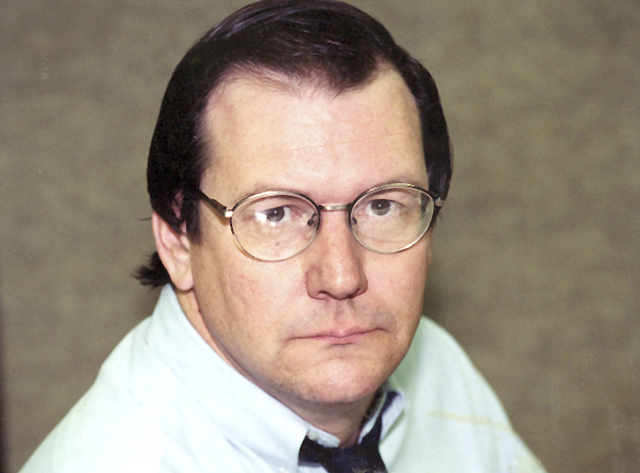Myers: Guinn center reports need work
The Kenny Guinn Center for Policy Priorities is a research organization that works to inform the public on issues that confront the state. It is relatively new, and 2016 was the first election in which it had a prominent role. Much of its work was useful. It could have been better.
Its website reads in part, “The Guinn Center represents the voice of the moderate middle that will move beyond the ‘either/or’ political rhetoric of our time.” That approach seems to constrain it from being bold or making clear when a policy proposal is mistaken.
Ballot Question Two this year, dealing with legal marijuana, was an excellent example. The Guinn Center issued a research paper that devoted 109 words to the claim that marijuana is a “gateway” drug that leads to more serious substance abuse. It stated the claims for both sides but gave readers no basis on which to decide which side is correct. The two sides ably stated their positions on their own. Merely re-stating their claims served little purpose for the public.
Reggie Burton, one of the staffers with the pro-marijuana campaign, summed up the Guinn paper well: “But in presenting the pro and con arguments, it suffers from the logical fallacy of false equivalence. For example, the report raises the issue of the relative harms of marijuana and alcohol. But it provides no actual data to back up our objective argument – and the scientific fact – that marijuana is less harmful than alcohol. Yet they include a long quote from a single individual to refute it.”
Nor were the public outreach efforts of the Guinn Center always stellar. On Nov. 2, a public radio station in Reno interviewed Guinn’s Nancy Brune on how tax money generated by the ballot measure would be used. They quoted her replying this way: “First and foremost, any revenue expected from the legalization of marijuana will go to expanding the capacity of the department of taxation. They are a very lean agency as many of our state agencies are.”
It’s hard to know where to start in critiquing this statement. First of all, it seems to confirm the claims of prohibitionists that money generated by the Nevada initiative “would be totally consumed by the bureaucratic costs of legal pot administration run by state government” (lawyer Jim Hartman). Second, it makes no reference to Colorado’s experience. According to Forbes, Colorado took in nearly $70 million in marijuana tax revenue from July 1, 2014, through June 30, 2015, not only covering the entire budget of the Marijuana Enforcement Division of the Department of Revenue, but nearly covering the $74,419,435 budget of the entire department and all its divisions.
But more important, the Brune quote doesn’t even touch on the more substantive uses of the money generated, like education. It was a straight anti-Q2 argument.
Another Guinn Center paper that was useful as far as it went but fell short of exploring the main issues dealt with a proposal to increase the sales tax in Washoe County to pay for schools infrastructure. In a study nearly 6,000 words long, the principal argument against the tax hike – regressiveness – received just 72 of them. A related fact – that the tax hike was proposed by an unelected panel composed heavily of businesspeople anxious to avoid business taxes – was never mentioned, though it is related to the regressiveness issue. And the fact that this would be the sixth time sales taxes were raised in Washoe County for schools was never mentioned. The lack of these points is particularly disappointing because Gov. Guinn himself tried unsuccessfully to make taxation fairer.
In 2003, the year of his titanic battle to change the state’s tax structure, one of Guinn’s goals was to make that structure fairer. “Absolutely,” he told me. “That was a very important part of the message that I was sending, that—look, what kind of a Nevada do we want to live in starting tomorrow and next year and for the future 10, 15 years that we can plan for? We have to change.”
The Guinn Center’s efforts in this election were helpful and certainly provided a source of information that was found nowhere else in a single place. I hope the Center builds on this effort.
Dennis Myers is an award-winning journalist who has reported on Nevada’s capital, government and politics for several decades. He has also served as Nevada’s chief deputy secretary of state.

















